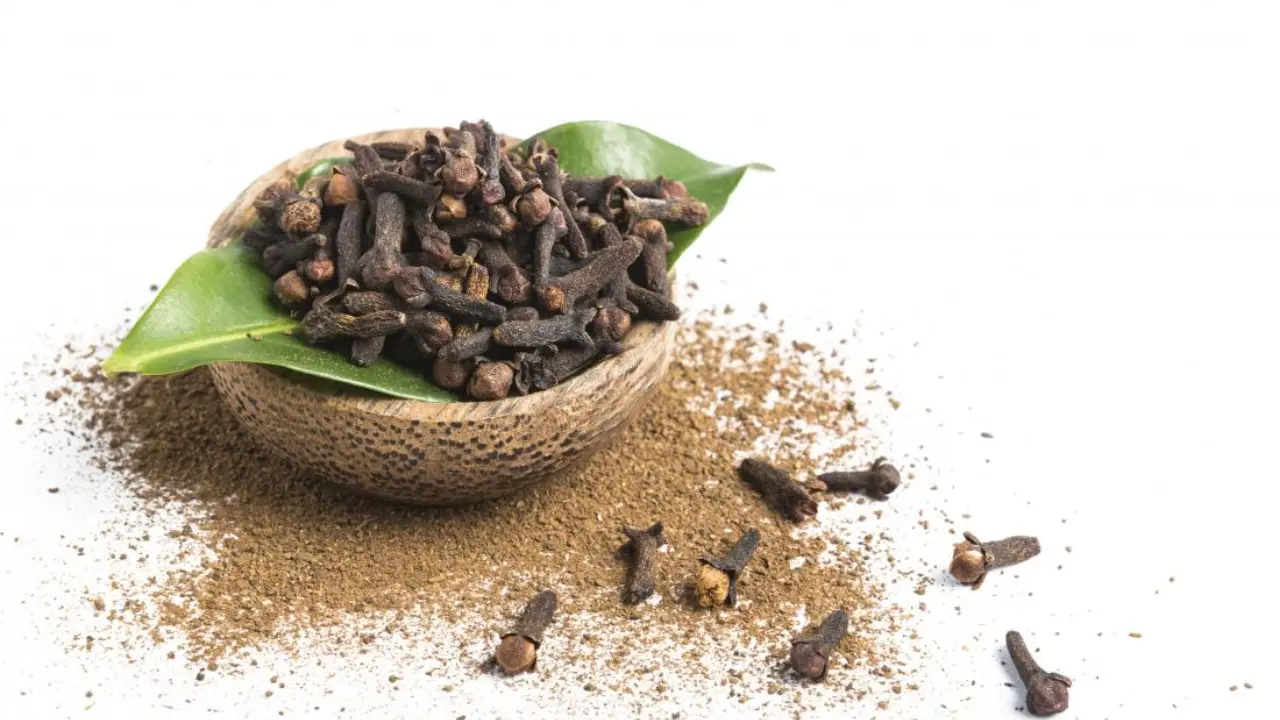I. Introduction
Clove is a popular spice that is widely used in cooking and medicine. It is known for its unique flavor, fragrance, and numerous health benefits. Clove is native to Indonesia and is derived from the dried flower buds of the clove tree. This article will explore the history and origin of clove, the benefits of clove, its culinary and medicinal uses, and its side effects.
II. History and Origin of Clove
Clove has been used for centuries in various cultures around the world. It is believed that the ancient Chinese used clove as a breath freshener and to treat digestive issues. The Egyptians utilized clove as a spice and for medicinal purposes, and it was even found in the tombs of pharaohs. Clove was also used by the Greeks and Romans, who considered it a luxury spice.
Clove was first introduced to Europe in the 4th century by traders from the Middle East. During the 16th and 17th centuries, the Portuguese and Dutch established clove plantations in Indonesia, which became the world’s largest clove producer. Today, clove is widely cultivated in other countries, including Tanzania, Sri Lanka, and Madagascar.
III. Clove Plant
The clove tree is an evergreen tree that grows up to 12 meters tall. It is native to Indonesia and is also known as Syzygium aromaticum. The tree bears flowers thaare vested before they open and then dried in the sun. The dried flower buds are used as a spice and for medicinal purposes. The clove tree is also known for its ornamental value, producing fragrant flowers and attractive foliage.
IV. Benefits of Clove
Clove has numerous health benefits, some of which are:
A. Rich in Antioxidants
Clove is a rich source of antioxidants, which help to protect the body against free radicals. Free radicals are harmful molecules that can cause damage to cells, and antioxidants help to neutralize them.
B. Anti-inflammatory Properties
Clove has anti-inflammatory properties that can help to reduce inflammation in the body. It can help to relieve pain and swelling caused by arthritis, toothaches, and other inflammatory conditions.
C. Dental Health
Clove is commonly used in dental products such as toothpaste and mouthwash because of its antibacterial properties. It can help to prevent gum disease and tooth decay.
D. Digestive Health
Clove can help to improve digestion and relieve digestive issues such as bloating, gas, and nausea. It can also help to stimulate the production of digestive enzymes, which aid in the digestion of food.
V. Culinary Uses of Clove
Clove is a popular spice that is widely used in cooking. It is commonly used in sweet and savory dishes and is oftoften toavor meat dishes, soups, and stews. Clove is also comwidelyed in baking, especially in istmas cakes and cookies.
VI. Medicinal Uses of Clove
Clove has been used for centuries in traditional medicine to treat a vvariousalth conditions. Some of its medicinal uses include:
A. Pain Relief
Clove can help to relieve pain.
B. Respiratory Health
Clove can help to relieve respiratory issues such as coughs, colds, and bronchitis. It can help to uce inflammation in the respiratory system and prorelievemptoms such as congestion and difficulty breathing.
C. Blood Sugar Control
Clove can help to regulate blood sugar levels, making it beneficial for people with diabetes. It can help to increase insulin sensitivity and improve glucose uptake by the cells.
D. Immune System Boost
Clove can help to boost the immune system and protect against infections. It can help to mulate the production of white blood cells, wsponsible for fighting off infections.
VII. Clove Oil and its Uses
Clove oil is derived from the dried flower buds of the clove tree. It is a concentrated form of clove and is used for various purposes, such as:
A. Dental Health
Clove oil is commonly used in dental products such as toothpaste and mouthwash because of its antibacterial properties. It can help to prevent gum disease and tooth decay.
B. Pain Relief
Clove oil can be used topically to relieve pain and inflammation. It can be used to relalleviatein caused by arthritis, toothaches, and other inflammatory conditions.
C. Respiratory Health
Clove oil can be ieve respiratory issues such as coughs, colds, and bronchitis. It can be used in steam inhalation or as a massage oil.
D. Insect Repellent
Clove oil can be used as an insect repellent. It is effective against mosquitoes, flies, and other insects.
VIII. Side Effects of Clove
While clove is generally safe for consumption, it can cause some side effects in certain people. Some of the side effects of clove include:
A. Allergic Reactions
Some people may be allergic to clove and may experience allergic reactions such as itching, swelling, and difficulty breathing.
B. Gastrointestinal Issues
Consuming large amounts of clove can cause gastrointestinal issues such as diarrhea, nausea, and vomiting.
C. Blood Thinning
Clove can act as a blood thinner and can interact with blood-thinning medications. People whoing blood-thinning medications should consult witir healthcare provider before consuming clove.
A final note
Clove is a versatile spice thad in cooking, medicine, and dental products. Clove oil is a concentrated forve andd for varn relief and insect repellent. While clove is generally safe for consumption, it can cause some effects in certain people.

